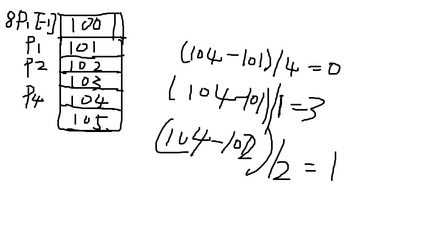* CAUSING SOMEBODY OR SOMETHING TO HAVE OR RECEIVE 给予
[Dn.n, Dn.pr] ~ sth to sb cause sbto receive, hold, have or own sth 给某人某物: Igave each of the boys an apple. 我给男孩每人一个苹果. *I gave an apple to each of theboys. 我给每个男孩一个苹果. * Each of theboys was given an apple. 给了每个男孩一个苹果. * An apple was given to each of the boys.每个男孩都得到一个苹果. * She gave her mother thetickets/gave the tickets to her mother to look after.她把票交给母亲保管. * Can I give you (ieWould you like) another slice ofcake? 要不要再来一块蛋糕? * She was given anew heart (ie had a heart transplant) in an eight-hour operation. 经八小时的手术给她移植了一颗新的心脏. *He gave the old lady his arm (ieallowed the old lady to lean on his arm) asthey crossed the road. 他让老太太挽着他的胳膊过马路. * I've just been given a 2000 pay rise.我刚获得2000英镑的加薪.
(a) [Dn.n, Dn.pr] ~ sth tosb cause sb to have sth as a present 送给某人某礼物: What are you giving (to) your brother for hisbirthday? 你弟弟生日你打算送他什麽? * I'mgiving all my friends books for Christmas.我在圣诞节要向所有的朋友赠书. * Have you given the waiter atip? 你给侍者小费了吗? (b) [I, Ipr, Tn, Tn.pr] ~ (sth)to sth contribute (money) to sth, esp a charity捐赠(钱财)(尤指给慈善事业): Handicapped children needyour help please give generously. 残疾儿童需要您的帮助--请慷慨解囊. *Please give generously to faminerelief. 请为饥荒账款慷慨捐赠. * Many peopleregularly give money to charity. 很多人经常为慈善事业捐款.
[Dn.n] allow (sb/sth) to have sth允许(某人[某事物])有某事物: They gave me a weekto make up my mind. 他们允许我有一周的时间作决定. * (infml 口) I give theirmarriage six months at the very most. ie I think that itwill last only six months. 我认为他们的婚姻顶多能维持半年. * She wishes that she'd been given the chance to go touniversity. 她想以前要是有机会上大学就好了. * Shewants a job that gives her more responsibility.她想得到一份责任更大的工作. * What gives you the right totell me what to do? 你有什麽权力指使我做事?
[Tn.pr, Dn.n] ~ (sb) sth for sthpay (the specified amount of money) to (sb) in order to have sth付给(某人)(某钱数)购买某物: Do you mean to tell me yougave 1500 for that pile of scrap metal!难道说你花了1500英镑买了那堆破铜烂铁! * How much will yougive me for my old car? 你肯出多少钱买我那辆旧车?

[Tn, Dn.n, Dn.pr] ~ sth (to sb)cause (sb) to have sth; provide or supply (sb) with sth 使(某人)有某事物;供给或供应(某人)某事物: The sun gives (us) warmth andlight. 太阳供给我们光和热. * You may becalled to give evidence at the trial. 法庭可能传你去作证. *She gives private lessons to supplement herincome. 她给私人授课以贴补收入. * She gave mea lift as far as the station. 她让我坐她的车顺便送我到车站. *He gives the impression of not caring adamn. 他给人的印象是满不在乎. * Could yougive me your honest opinion of the book? 你对这书有何意见可否直率提出?* What gave you the idea that I didn't likeyou? 你怎麽以为我不喜欢你呢? * They gave thename Roland to their first child.他们给自己的第一个孩子起名为罗兰.
[Tn, Dn.n, Dn.pr] ~ sth to sb/sthdevote (time, thought, etc) to sb/sth 将(时间﹑ 思想等)用於某人[某事物]:I've given the matter a lot of thought/givena lot of thought to the matter. 我对这事已反覆思考过. *The government should give top priority torebuilding the inner cities. 政府应该优先重建城内旧中心区.
* CAUSING SOMEBODY TO SUFFER 使遭受
[Dn.n, Dn.pr] ~ sth to sb cause sbto undergo (the specified punishment, esp a period of time inprison) 使某人承受(某种惩罚, 尤指监禁): The judge gave hima nine-month suspended sentence. 法官判处他9个月监禁, 缓期执行. *The headmaster gave the boys ascolding. 校长训斥了那些男生.
[Dn.n, Dn.pr] ~ sth to sb infectsb with (an illness) 传染给某人(疾病): You've givenme your cold/given your cold to me. 你把感冒传染给我了.
* COMMUNICATING 传达
[Dn.n] (used in the imperative 用於祈使句)offer (sth) to sb as an excuse or explanation 向某人提出(某事)作为藉口或解释:Don't give me that rubbish about having aheadache; I know you don't want to go to the party.别跟我扯什麽头痛来当藉口, 我知道你不想赴会.
[Dn.n] make (a telephone call) to sb给某人打(电话): I'll give you a ringtomorrow. 明天我给你打电话.
[Dn.n] admit the truth of (sth) to sb;grant 向某人承认(某事)属实; 同意: This government has agood record on inflation, I give you that, but what is it doingabout unemployment? 政府抑制通胀有方, 此话不假, 可是对失业问题又怎麽处理呢?
* PERFORMING OR PROVIDING 表现﹑ 表演或举办
[Tn] perform or present (a play, concert,etc) in public 表演或演出(戏剧﹑ 音乐会等): give a poetryreading, a song recital, etc 表演诗朗诵﹑ 举行独唱会 *How many performances of the play are yougiving? 这剧你们要演多少场? * The play wasgiven its first performance in June 1923. 这剧於19236月首次公演.* The Prime Minister will be giving a pressconference tomorrow morning. 首相明日上午举行记者招待会.
[Tn] provide (a meal, party, etc) as ahost 作东道主举办(宴会﹑ 聚会等): I'm giving a dinnerparty next Friday evening; would you like to come?下星期五晚上我举行宴会, 您肯赏光吗?
[Tn] carry out or perform (an action)做(某动作): She gave a shrug of hershoulders. 她耸了耸肩膀. * He gave astart and woke up suddenly. 他突然惊醒.
[Dn.n] perform (the specified action) on(sb/sth) 对(某人[某物])施(某动作): give sb a kick,push, shove, etc 踢某人一脚﹑ 推某人一把﹑ 挤某人一下 * give sb a punch on the nose 在某人鼻子上打一拳 *She gave him a kiss. 她吻了他一下. *Do give your shoes a polish before you goout. 出门前把皮鞋擦亮.
* UTTERING OR DECLARING 出声或宣布
[Tn] utter (the specified sound) 发出(某声音):give a groan, laugh, sigh, yell,etc 发出一声呻吟﹑ 笑一笑﹑ 叹一口气﹑ 大喊一声 * Hegave a strangled cry and fell to the floor. 他发出一声受扼的叫喊,随即倒在地板上.
[Dn.n] (used in the imperative 用於祈使句) ask(people) to drink a toast to (sb) 请(大家)为(某人)乾杯: Ladies and gentlemen, I give you his Royal Highness, thePrince of Wales. 女士们, 先生们, 请为威尔士亲王殿下乾杯.
[Cn.a] (esp of a referee, an umpire, etcin sport) declare that (sb/sth) is in the specified condition orposition (尤指体育运动的裁判等)宣布, 判: The umpire gavethe batsman out (leg before wicket).裁判裁定击球员(用腿截球违例)出局.
* OTHER MEANINGS 其他意义
[Dn.n] produce (the specified feeling) in(sb) 使(某人)产生(某感觉): All that heavy lifting hasgiven me a pain in the back. 我一直抬那些重东西, 现在腰都痛了. *Why don't you go for a walk? It'll give youan appetite for your lunch. 你怎麽不出去散散步?散散步午饭时就有食慾了.
[I] bend or stretch under pressure在压力下弯曲或伸长: The branch began to give under hisweight. 他身体的重量把树枝压弯了. * (fig 比喻) Unless one sidegives, the strike could go on until Christmas. 除非有一方让步,否则罢工很可能继续到圣诞节.
(combines with a n in many fixed expressions, wheregive and the n together have the same meaning as av related in form to then 与名词结合构成give + n形式的许多固定词组,具有与该名词相应的动词同样的词义, 如 give sb asurprise = surprisesb): Let me give you a piece ofadvice, ie advise you. 我给你提个建议吧. * Her acting has given pleasure to (ie pleased)millions (of people).她的表演给千百万人带来娱乐享受. * The news gave us rather ashock, ie rather shocked us. 这消息使我们颇为震惊. *I trust that you can give an explanationfor (ie explain) yourextraordinary behaviour? 我认为你一定能对自己的不寻常行为作出解释吧? *We will give you all the help (iehelp you in every way) we can.我们一定尽力帮助你. (For other similar expressions, see entries for thens 其他类似固定词组见有关名词词条, 如give one's approval to sth =>approval;give one's permission =>permission.)
(idm 习语) sb doesn't/couldn't give adamn, a hoot, etc (about sb/sth) (infml 口) sb does not care at all (about sb/sth)某人(对某人[某事物])满不在乎, 无所谓: He couldn'tgive a damn whether he passes the exam or not.他对考试及格与否满不在乎. ,give and
`take be mutually tolerant and forgiving within arelationship 相互容让: For a marriage to succeed,both partners must learn to give and take. 要使婚姻美满,双方必须懂得互相迁就. `give it to sb (infml 口) attack, criticize or rebuke sb severely猛烈攻击﹑ 批评或驳斥某人: The boss will really give itto you if you miss the deadline for the job. 要是到期完不成工作,老板就要给你点厉害. give me sth/sb (infml 口) (used to show that one prefers the thingor person specified to sth/sb mentioned previously 用以表示宁取某事物或某人,而不取先提及的某事物[某人]): I can't stand modernmusic; give me Bach and Mozart every time! ie I shallalways prefer Bach and Mozart. 我受不了现代音乐, 还是喜欢巴赫和莫扎特的作品! give ortake sth the specified amount, time, etc more or less (数量﹑时间等)或多或少: `How long will it take us to get toOxford?' `About an hour and a half, give or take a fewminutes.' ‘到牛津要多久?’‘大约一个半小时, 上下差不了几分钟.’ give sb tobelieve/understand (that)... (often passive 常用於被动语态);(fml 文) cause sb tobelieve/understand sth 使某人相信[明白]某事物:I was given to understand that she wasill. 我获悉她生病了. What `gives? (infml 口) What is happening? 出什麽事了? (For otheridioms containing give, see entries for ns, adjs, etc与give搭配的其他习语见有关名词﹑ 形容词等的词条, 如 give ground =>ground1;give rise to sth => rise1.)
(phr v) give sb away (in amarriage ceremony) lead the bride to the bridegroom and `give' herto him (婚礼中)将新娘交与新郎: The bride was given awayby her father. 由父亲把新娘交与新郎. give sth away(a) give sth free of charge 免费送出某物; 赠送: He gave away most of his money to charity.他把大部分钱都捐赠给慈善事业了. * (infml 口)These watches are only a pound each; we'realmost giving them away! 这些手表每块只卖一英镑, 我们差不多等於白送!(b) distribute or present sth 分发或赠与某物: The mayor gave away the prizes at the school sportsday. 市长在学校运动会上颁发奖品. (c) not use or take (achance, an opportunity, etc) through carelessness 由於大意而未利用或抓住(时机﹑机会等): They gave away their last chance ofwinning the match. 他们坐失赢得比赛的最後机会. give sth/sbaway reveal sth/sb intentionally or unintentionally; betraysth/sb 有意或无意地泄露某事物或出卖某人: She gave away statesecrets to the enemy. 她将国家机密泄露给敌人了. * His broad Liverpool accent gave him away, ierevealed who he really was. 他那很重的利物浦口音把他自己暴露了.
give sb back sth; give sth back (to sb) (a)return sth to its owner 将某事物归还原主: Could yougive me back my pen/give me my pen back? 你把我那枝笔还给我好吗?(b) allow sb to have or enjoy sth again 使某人恢复或享受某事物:The operation gave him back the use of hislegs. 他手术後双腿恢复了功能.
give sth for sth exchange or sacrifice (much) for sth 交换某事物;(多)作出牺牲以换取某事物: I`d give a lot for the chanceto go to India. 我宁可多作牺牲也要争取到去印度的机会.
give sth forth (fml or joc文或谑) produce or emit sth 产生或发出某物: The enginegave forth a grinding noise, then stopped. 发动机发出一阵轧轧声,随即停了下来.
give sth in hand over sth to sb who is authorized to receiveit 将某事物呈交给某人: Please give your examinationpapers in (to the teacher) when you've finished.考卷答完後请上交(给老师). give `in (to sb/sth) allow oneself tobe defeated or overcome (by sb/sth) (向某人[某事物])屈服, 让步,投降: The rebels were forced to givein. 叛乱者被迫投降. * She's a gutsyplayer, she never gives in. 她是个勇敢的选手, 从不屈服. *The authorities showed no signs of giving into the kidnapper's demands. 当局对绑架者的要求丝毫没有让步的迹象.
give sth off send out or emit sth 送出或发出某物: The cooker is giving off a funny smell. 锅里冒出一股怪味.* This fire doesn't seem to be giving offmuch heat. 这炉火好像不大热.
give on to sth have a view of sth; lead directly to sth有某物的景致; 朝向某物: The bedroom windows give on tothe street. 卧室的窗户面向街道. * This doorgives on to the hall. 这门是通往大堂的.
give `out (a) come to an end; be exhausted 用完; 消耗尽;精疲力竭: After a month their food supplies gaveout. 过了一个月, 他们的食物已消耗殆尽. * Herpatience finally gave out. 她终於失去了耐性. (b) (of anengine, a motor, etc) stop working; break down (指发动机等)停止运转, 停机,出故障: One of the plane's engines gave out inmid-Atlantic. 飞机在大西洋中部飞行时, 其中一个发动机出了故障. give sthout (a) distribute or hand out sth 分发或散发某物:The teacher gave out the examinationpapers. 教师发了考卷. (b) send out or emit sth 送出或发出某物:The radiator is giving out a lot ofheat. 散热器释放出很多热量. (c) (often passive 常用於被动语态)announce or broadcast sth 宣布或广播某事: The newsof the President's death was given out in a radiobroadcast. 总统逝世的消息已在电台上播出了. * Itwas given out that the President had been shot.据称总统受到枪击.
give over (doing sth) (infml 口) (used esp in the imperative or with averb in the -ing form尤用於祈使句或与动词ing形式连用) stop doing sth 停止做某事: Giveover, can't you? I can't work with you chattering away likethat. 到此为止吧, 行吗? 你这样聊下去我就没法工作了. * Give over complaining! 别发牢骚了! give oneselfover to sth sink into (the specified state); devote oneselfcompletely to sth 沉溺於(某种状态); 完全献身於某事物: Afterhis wife's death, he seemed to give himself over todespair. 他妻子死後, 似乎万念俱灰. * In herlater years she gave herself over to writing full-time.她晚年专事写作. give sth over to sth (usu passive 通常用於被动语态) use sthspecifically for sth 专为某事而使用某物: The villagehall is given over to civic functions and meetings.村子的礼堂专作举行庆典和会议之用. * The period after supperwas given over to games. 晚饭後是游戏时间.
give `up abandon an attempt to do sth 放弃做某事的尝试:They gave up without a fight.他们不战而降. * She doesn't give upeasily. 她做任何事都不轻易放弃. * I give up;tell me what the answer is. 我认输, 告诉我答案吧. give sbup (a) no longer hope for or expect the arrival orrecovery of sb 对某人的到来﹑ 康复或寻回不再抱希望或不再期待: Thereyou are at last! We'd given you up. 你终於来了! 我们还以为你不来呢! *The doctors had given her up but she made aremarkable recovery. 医生们已放弃了治愈她的希望, 而她却恢复得很好. (b)stop having a relationship with sb 与某人断绝关系: Why don't you give him up? 你怎麽不和他一刀两断呢? givesth up stop doing or having sth; renounce sth 停止做某事; 放弃持有某物;宣布放弃某事物: You ought to give up smoking; I gaveit up last year. 你应该戒烟, 我去年就戒掉了. * She didn't give up her job when she got married.她未因结婚而放弃工作. give oneself/sb up (to sb) no longer avoid orprotect oneself/sb from being captured; surrender 投案; 自首; 出首; 投降:After a week on the run he gave himself up(to the police). 他经过一周的逃亡以後(向警方)投案了. give sth up (tosb) hand sth over to sb else 将某物交与他人: Hehad to give his passport up to the authorities.他得把护照交给当局. * He gave up his seat to apregnant woman, ie stood up to allow her to sit down.他把座位让给一个孕妇. give up on sb (infml 口) no longer believe that sb is going to besuccessful; lose hope in sb 不再相信某人会成功; 对某人失望.
# `give-away n(infml 口)
1 thing that is given to sb without charge 赠品.
2 look, remark, etc that unintentionally reveals a secret无意中泄露秘密的表情﹑ 言语等: The expression on her facewas a (dead) give-away. 她脸上的表情(完全)暴露了她的秘密.give2 / gɪv; ɡɪv/n
[U] quality of bending or stretchingunder pressure; elasticity 延展性; 弹性; 弹力: Thisrope has too much give in it. 这条绳子弹性太大. *Don't worry if the shoes seem a bit tight atfirst; the leather has plenty of give in it.这鞋刚穿时要是有点紧没关系, 这种皮子很有延展性.
(idm 习语) ,give and `take(a) willingness to be mutually tolerant and forgiving withina relationship 互相忍让; 互相迁就: If the dispute isto be resolved there must be some give and take.若要争执获得解决, 双方就要互相让步. * [attrib 作定语] Marriageis a give-and-take affair. 婚姻是互谅互让的事. (b)exchange 交换: the lively give and take ofideas, ie willingness to make concessions or compromises活跃的思想交流(乐於迁就或妥协).
 爱华网
爱华网



